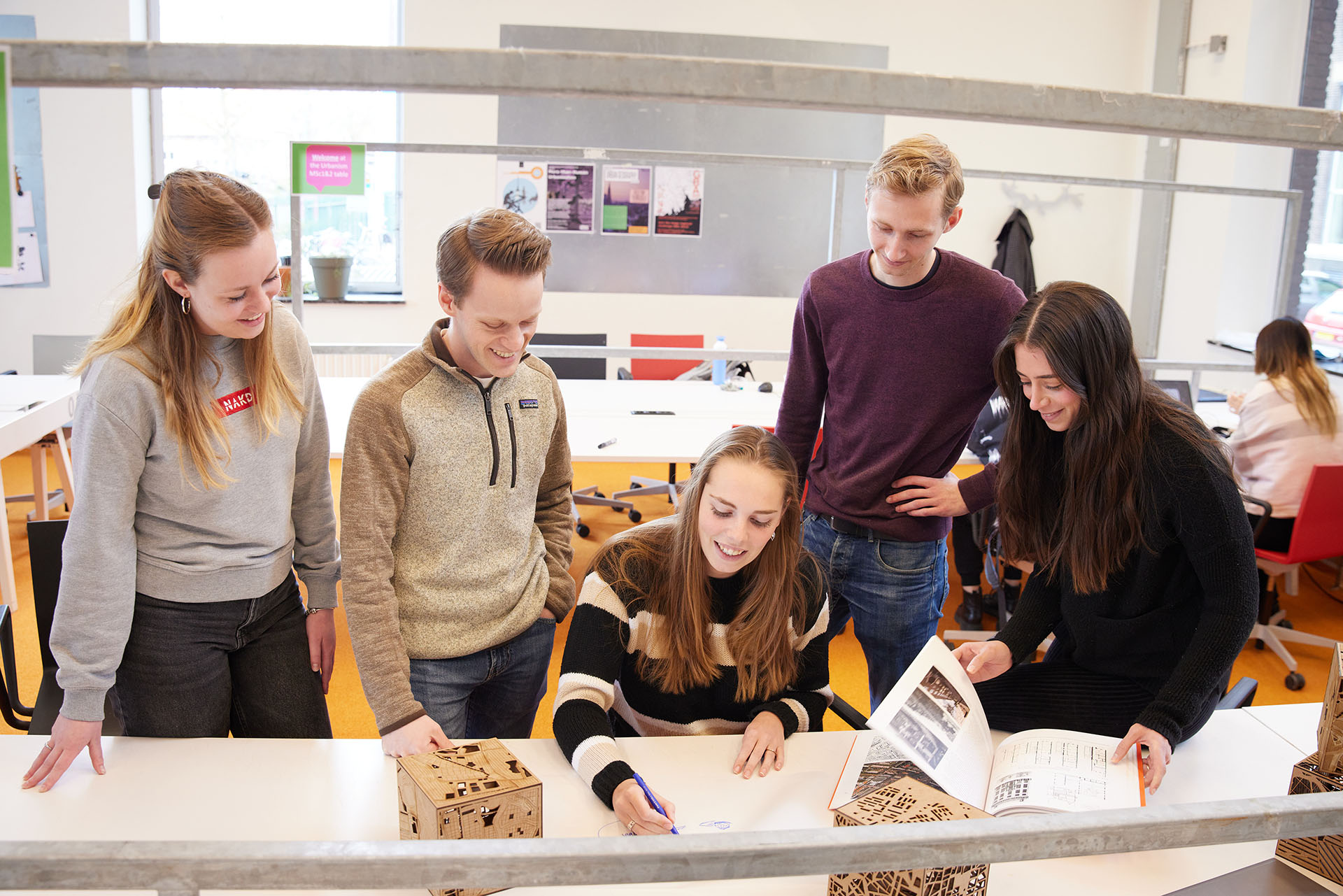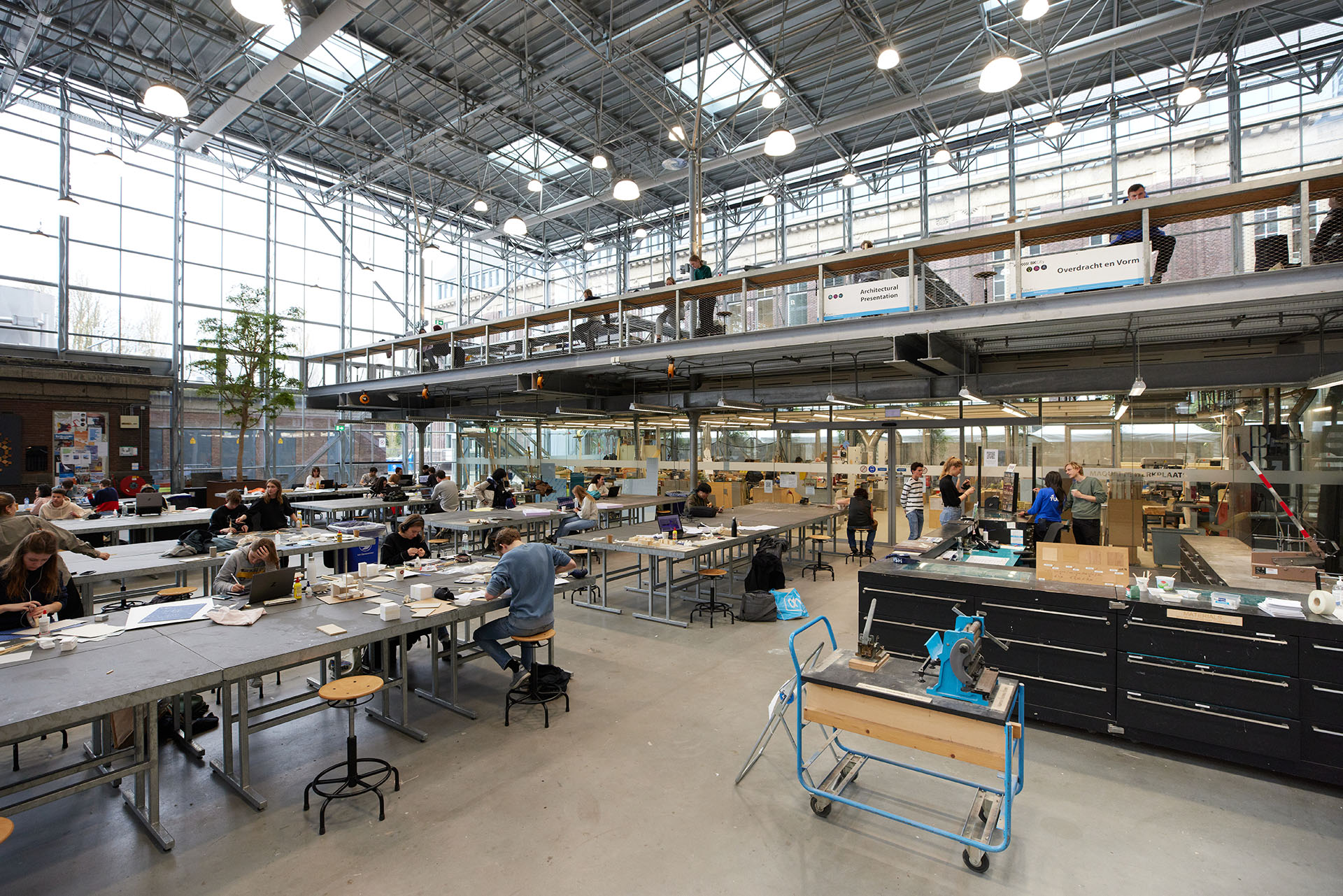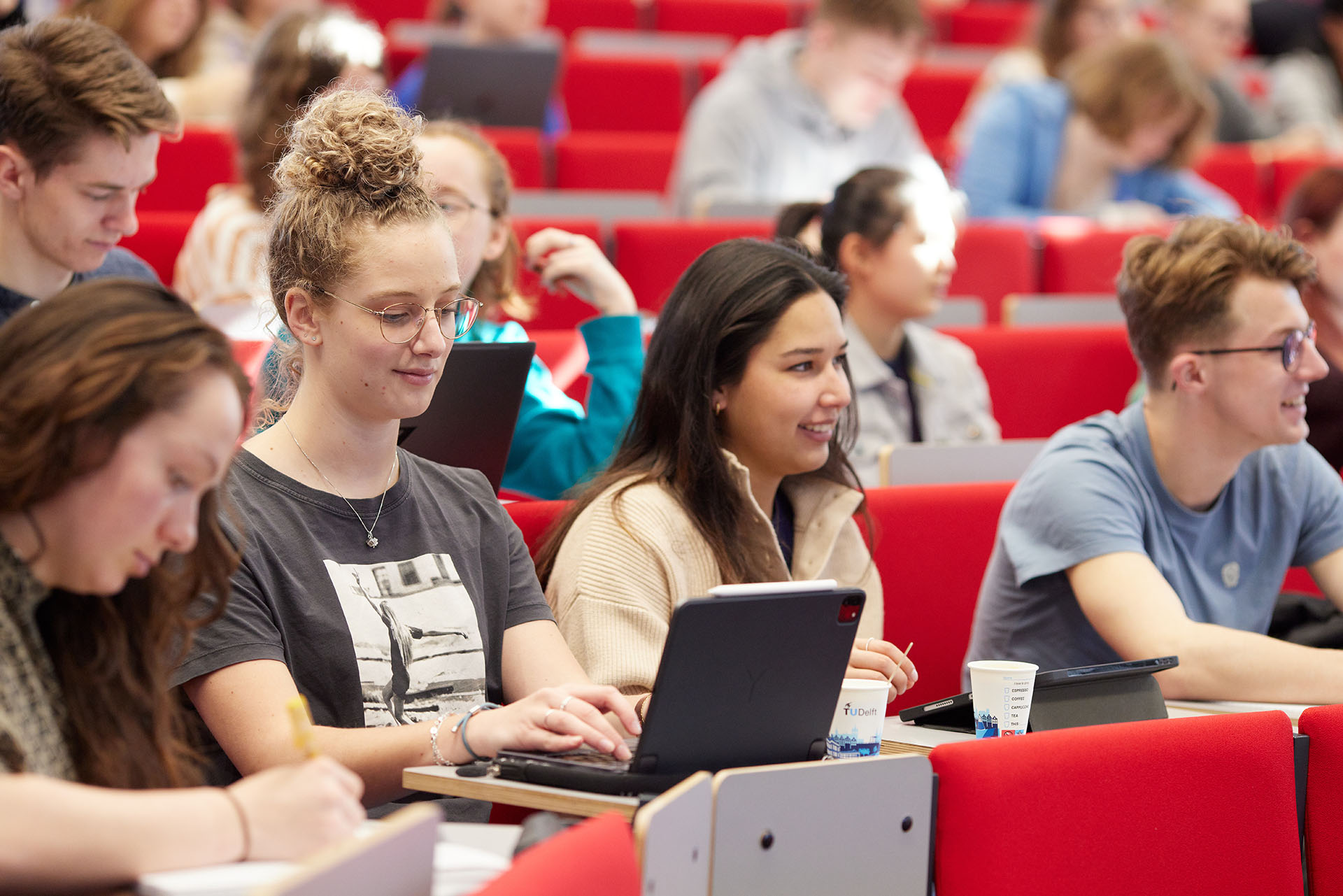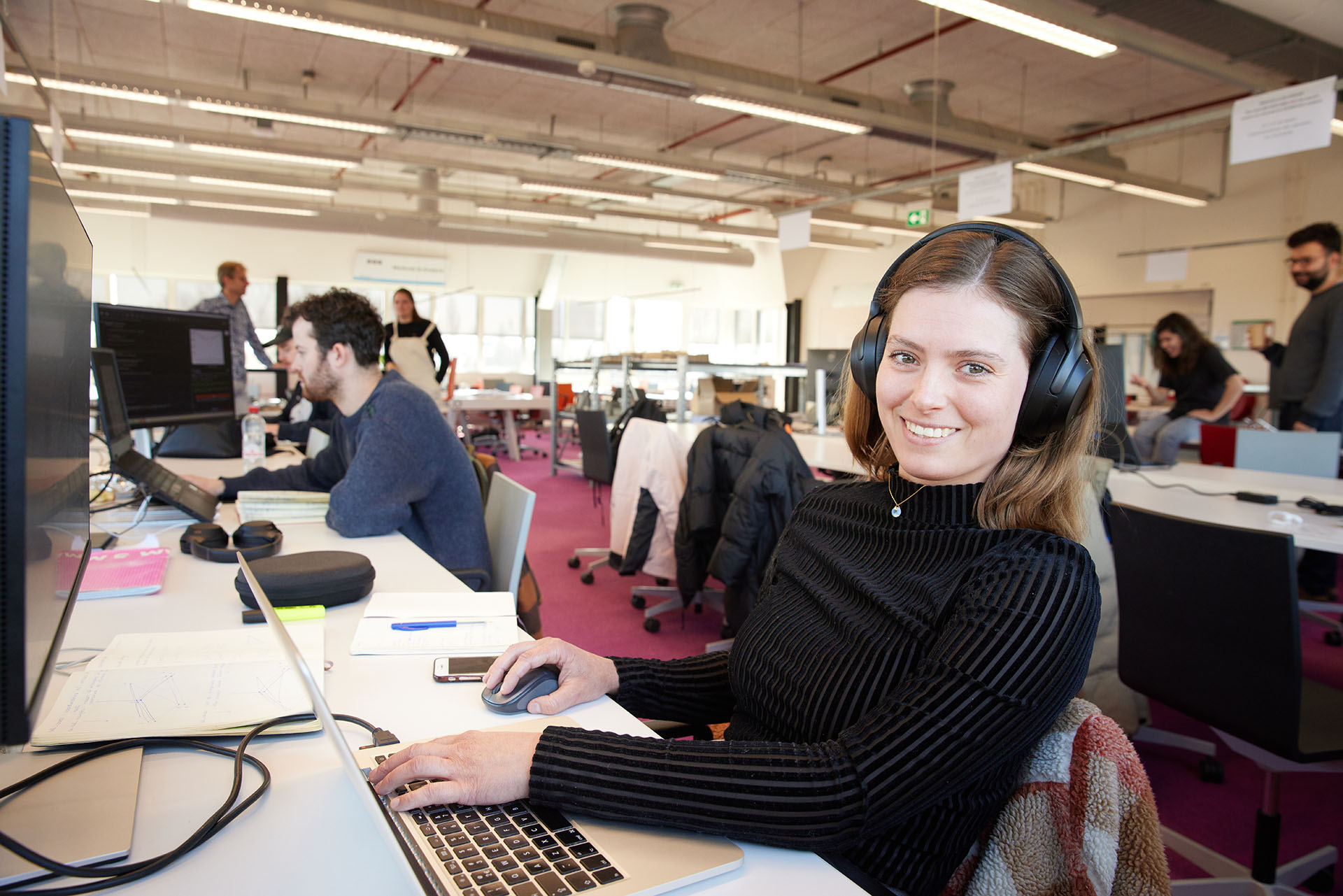Bachelor 'Bouwkunde' Renewal: ready for the building challenges of today and the future
The bachelor of 'Bouwkunde' programme is getting an update! We are going to add more breathing room and room for personal development to the programme. There will also be an update on the teaching side. The introduction of the updated bachelor's programme has been scheduled for September 2024. Director of Education MaartenJan Hoekstra, Bachelor Coordinator Leo van den Burg and Faculty Head of Education and Student Affairs Mieke Topsom explain why the renewal is needed, what changes to expect and why students and faculty will profit.
A more feasible, teachable and up-to-date bachelor's programme: that is the objective of the bachelor renewal at the Faculty of Architecture and the Built Environment, says Mr Hoekstra. "We want to prepare students as best we can for the societal challenges we are faced with, such as climate change and the housing challenge. We need to do this in a feasible and workable way, however, so that students and lecturers alike can reap the benefits."
Today's professional field requires different knowledge and skills
Need for bachelor renewal
Mr Hoekstra explains why the renewal is necessary. "The last update takes us back ten years. Many things have changed in the meantime, both in academia and the professional field. That is why we have critically reviewed the programme, to explore what we can improve."
This does not mean that the programme is being radically overhauled, Mr Van den Burg adds. "The current bachelor programme was rated 'good' after the most recent accreditation inspection in 2018, and is also highly rated by students. So, there are no plans to fiddle with the basic principles of the bachelor's programme. We do need to improve a few points, however."


More breathing room in the education programme
An analysis of the current programme revealed four areas for improvement. The first is to add more breathing room to the programme, Mr Hoekstra says. "Over the years, the modules have become increasingly full. With the best of intentions, many courses have added all manner of things, such as more educational material, assignments, or response lectures. These additions have significantly increased the workload for students."
According to Mr Van den Burg, there are several ways to create more room. "The curriculum size per subject can be slimmed down somewhat. But we can also create more breathing room between courses. We will be introducing a personal development week, for example. During that week – which is to take place twice a year – teaching really comes to a standstill."
These weeks also give teachers breathing room, Ms Topsom adds. "Sometimes a teacher has to grade exams, prepare the next course and even start teaching again in a single week. This presents enormous challenges, and is not desirable. More preparation time for teachers benefits the quality of their teaching."


More attention for reflection and choice
The second area of improvement is academic attitude. Mr Hoekstra: "The accreditation inspection resulted in a recommendation to strengthen academic skills and an academic attitude for all the learning trajectories. That is why we are going to integrate personal skills such as critical thinking and reflection into the curriculum in a better and broader way."
There will be more room for students' personal development
It also means students will have more agency in determining their personal path within the programme, Mr Van den Burg said. "There will be more choice in the programme, particularly in the third year. The personal development weeks are also important in this regard. Students will have time to reflect on what they are looking to get out of their studies, whether they are still in the right place, and how they can better personalise their education."
Updating the content and form of teaching
Mr Hoekstra classifies the third and fourth parts of the renewal under 'updating'. "On the one hand, this is about the educational content. The spatial challenges and architectural issues of today are different than they were a decade ago. Back then, topics such as circularity and the energy transition were still in their infancy or barely related to the built environment."
According to Mr Hoekstra, these and other social issues have earned a permanent place in education. The same is true for technical skills, Mr Van den Burg adds. "Technology, such as AI and Virtual Reality, has evolved significantly. Many architectural firms expect graduates to be able to work with these technologies. That is what we want to prepare our students for."
When it comes to the form of teaching, didactics will be modernised, Ms Topsom says. "This concerns teaching and assessing methods. At the university, we are increasingly working with online and blended education. In this area, we are exploring appropriate forms of work to use in the programme."
Involving students and lecturers
Involving students and teachers in the renewal is essential, Mr Hoekstra says. "After all, the renewal is intended for them. We have regular meetings with the Board of Studies, Study Association Stylos and the Faculty Student Council. Student representatives are also members of the bachelor renewal steering committee. In other words, we are involving students in setting the course for the renewal ship, as it were, on several levels."
The same goes for teachers, Mr van den Burg says. "Last June, we organised an educational afternoon for teachers by way of a kick-off event. The main aim was for everyone to recognise themselves in, and get behind, the four points mentioned. That turned out to be the case. We continued to build from there on out. Several other meetings followed, where employees were asked to provide input."
The practical lecturers play an important role when it comes to linking the required reading with practice, Ms Topsom says. "Many teachers and module coordinators are active in the professional field in addition to their work at the university. For example, we employ architects who teach one or two days a week. They know what is required in the field today, but also have ties to the faculty at the same time."
First phase: renewal of learning trajectories
Currently, five 'learning trajectory teams' of teachers, students and module coordinators are working on developing the learning trajectories. Mr Van den Burg: "In January, we asked these teams to draw up the learning trajectories for each course based on the four goals we had set. It is important here that the principle of a broad bachelor's programme with integrated courses or 'modules' remains intact."
Although the content of the learning trajectories is being updated, their names will remain the same, Mr Hoekstra says. "We are just merging the Transfer and Form (OV in Dutch) and Academic Skills (AC in Dutch) learning lines into the new Science and Skills (WV in Dutch) learning trajectory. Doing so will allow us to devote more attention to the scientific nature of our discipline and link this knowledge with digital, personal and social skills."
Next steps for the bachelor renewal track
By early summer, the main lines and the content of the learning trajectories should be ready. Mr Van den Burg: "This will give us an initial overview of what each learning trajectory will look like. The teams will then start fine-tuning, in preparation for February's curriculum decision."
In the third and final phase, early 2024, the renewal will get its final form, Mr Hoekstra concludes. "At that point, we will focus on filling in the schedules, organising teachers and creating the course manuals. In September 2024 we will launch the renewed bachelor's programme."
Switch here to the Dutch version of the interview.
Important for students and staff
A page on the BK student portal and intranet has been set up to keep students and employees optimally informed about the progress.
- Students visit the BK student portal
- Employees visit intranet
